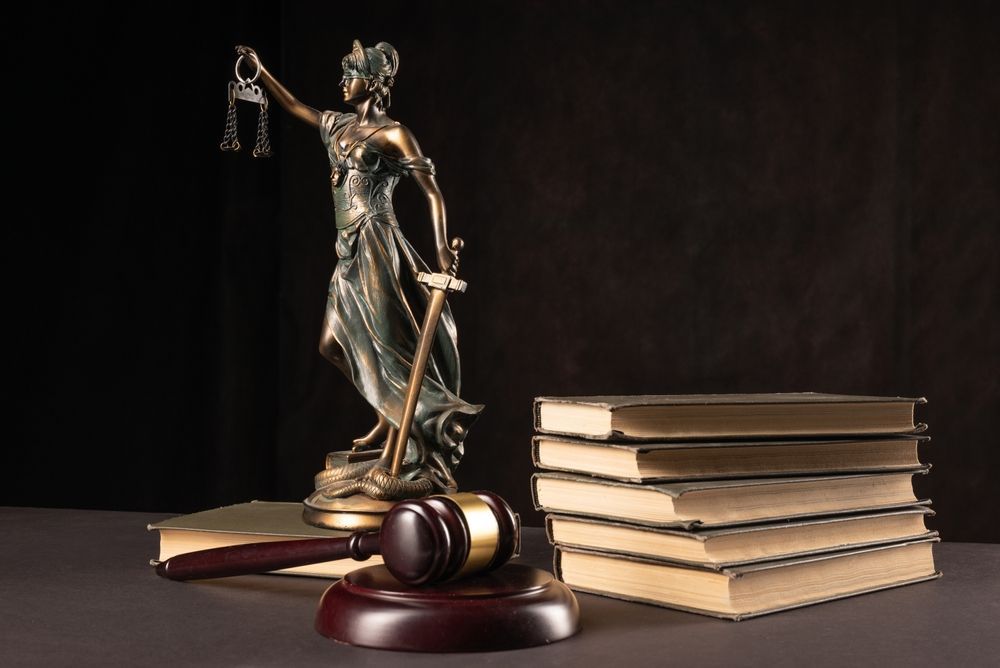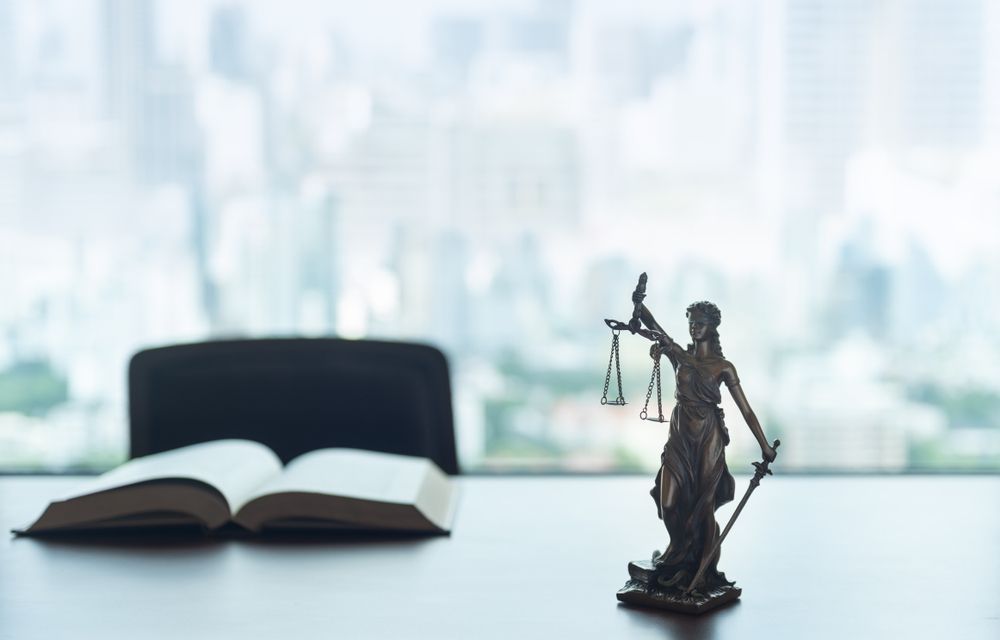Evidence Mastery for Successful Pre-Trial Motions
Being a responsible attorney means doing everything in your power to help your client, no matter the situation or circumstances of the case. Preparing evidence, conducting investigations, and collating the facts convincingly are all essential for a successful outcome. The name of the game is presenting irrefutable evidence compellingly.
Mastering evidence rules is crucial for successful pre-trial motions. Many attorneys struggle with collecting and analyzing evidence effectively, which can impact their chances in the courtroom. This article will cover essential strategies for gathering the right evidence, analyzing it to build strong arguments, and presenting it compellingly during pre-trial hearings. By understanding these key points, readers will learn how to overcome common evidence issues and utilize expert witnesses to strengthen their cases. Engaging with this content will help attorneys improve their success rate in pre-trial motions and ultimately enhance their practice. If you need personalized guidance, schedule a consultation to discuss your specific needs.
Mastering Evidence Rules for Successful Pre-Trial Motions
Understanding Federal and State Evidence Laws is essential for any advocate involved in a head-on collision car accident lawsuit. Identifying admissible and inadmissible evidence, including the role of an expert witness and the implications of an insurance policy, can significantly impact the outcome of pre-trial motions. This section will provide practical insights into these critical topics, ensuring effective preparation for any plea.
Understand Federal and State Evidence Laws Thoroughly
Understanding federal and state evidence laws is crucial for anyone involved in a car accident claim. These laws dictate what evidence can be presented in court, including medical records related to concussions or other injuries sustained in the accident. Familiarity with these regulations allows advocates to effectively argue for the admissibility of evidence, which can significantly influence the outcome of pre-trial motions.
In addition to knowing the rules of evidence, it is important to understand how arbitration may affect a car accident claim. For instance, if an insurance policy includes an arbitration clause, it may limit the options available for pursuing a case in court. Advocates must be prepared to navigate these complexities, ensuring that all necessary licenses and documentation are in order to support their client's position effectively.
Identify Admissible and Inadmissible Evidence Correctly
Identifying admissible and inadmissible evidence is a fundamental skill for advocates involved in pre-trial motions. For instance, in cases involving domestic violence, certain statements may be excluded under hearsay rules, while medical records documenting injuries can be crucial for establishing a claim. Understanding these nuances helps attorneys effectively prepare their cases, ensuring that only relevant evidence is presented to the court, which can significantly influence the outcome of mediation or alternative dispute resolution processes.
Moreover, the context of probate cases often requires careful consideration of what evidence is permissible. Documents filed in the docket must adhere to specific legal standards, and any deviation can lead to dismissal or unfavorable rulings. By mastering the rules surrounding admissibility, advocates can better navigate the complexities of their cases, ultimately enhancing their clients' chances of success in both litigation and settlement negotiations.
Collecting Essential Evidence to Support Your Motion
Gathering physical evidence following legal procedures is vital for supporting a motion in personal injury cases. This includes collecting documents and items that can substantiate claims related to the accident. Additionally, documenting witness testimonies accurately and carefully can provide crucial insights that may influence a judge's decision. These steps are essential for building a strong case and minimizing expenses associated with litigation.
Gather Physical Evidence Following Legal Procedures
Gathering physical evidence following legal procedures is essential in personal injury cases, especially those involving a traffic collision. This evidence can include photographs of the accident scene, vehicle damage, and any visible injuries sustained by the parties involved. Proper documentation of these elements not only supports claims for damages but also strengthens the overall case by providing a clear narrative of the events that transpired.
In addition to physical evidence, obtaining witness statements can be invaluable. Witnesses can provide firsthand accounts that may clarify the circumstances surrounding the traffic collision. Advocates should ensure that these testimonies are collected promptly and accurately, as they can significantly impact the outcome of pre-trial motions. Engaging in a free case evaluation can also help identify what evidence is necessary to support the claims effectively, ensuring that all relevant policies and procedures are followed throughout the process.
Document Witness Testimonies Accurately and Carefully
Documenting witness testimonies accurately is crucial in accident cases, as these statements can provide essential insights into the events leading up to a car accident. Witnesses can help establish the circumstances surrounding the incident, including details about property damage and any injuries sustained. By ensuring that these testimonies are recorded clearly and comprehensively, advocates can strengthen their clients' claims for disability and wage loss, which are often pivotal in securing fair compensation.
To effectively document witness testimonies, advocates should conduct interviews in a structured manner, asking open-ended questions that encourage detailed responses. This approach not only captures the nuances of the witness's account but also helps to clarify any ambiguities that may arise later in the case. Accurate documentation of these testimonies can significantly influence the outcome of car accident claims, making it imperative for legal professionals to prioritize this aspect of evidence collection.
Analyzing Evidence Effectively to Build Strong Arguments
Evaluating the relevance of each piece of evidence is essential in building strong arguments for pre-trial motions. This includes assessing how evidence relates to claims of negligence or incidents like hit and run. Additionally, anticipating opposing counsel's challenges to evidence, such as motions in limine, can mitigate risks and strengthen the case. These strategies are vital for effective advocacy.
Evaluate the Relevance of Each Piece of Evidence
Evaluating the relevance of each piece of evidence is critical in car accident cases, as it directly impacts the strength of the arguments presented. Attorneys must assess how each item relates to the claims being made, particularly regarding property damage and injuries sustained. For instance, photographs of the accident scene can provide clear context, while medical records can substantiate claims about the extent of injuries, thereby protecting the rights of the injured party.
Moreover, understanding the relevance of evidence helps attorneys anticipate challenges from opposing counsel. By preparing for potential motions in limine, legal professionals can effectively counter arguments that seek to exclude key evidence. This proactive approach not only enhances the chances of a favorable outcome but also ensures that clients are not burdened with unnecessary fees due to inadequate preparation.
Anticipate Opposing Counsel's Challenges to Evidence
Anticipating opposing counsel's challenges to evidence is a critical aspect of preparing for a lawsuit, especially in cases involving distracted driving. Legal professionals must be aware that opposing counsel may file motions to exclude certain evidence, arguing that it is irrelevant or prejudicial. For instance, if a traffic accident resulted from a misdemeanor offense, the defense may attempt to dismiss evidence related to the driver's prior infractions, claiming it does not pertain to the current case. By preparing counterarguments and ensuring that all evidence is clearly relevant to the claims being made, advocates can strengthen their position and increase the likelihood of overcoming summary judgment motions.
Moreover, understanding the potential objections that may arise allows attorneys to proactively address weaknesses in their evidence. For example, if witness statements are crucial to establishing liability in a distracted driving case, advocates should ensure these testimonies are well-documented and credible. Anticipating challenges not only helps in crafting stronger arguments but also demonstrates thorough preparation to the court. This level of diligence can significantly impact the outcome of pre-trial motions, ultimately benefiting clients seeking justice for their injuries.
Presenting Compelling Evidence in Pre-Trial Hearings
Organizing evidence logically is essential for presenting a compelling argument in pre-trial hearings. A well-structured evidence log can clarify the legal process, making it easier for judges to understand the case's valuation. Additionally, preparing visual aids can enhance the impact of the evidence, whether in a plea bargain or a jury trial, ensuring that the arguments resonate effectively.
Organize Evidence Logically for Clear Presentation
Organizing evidence logically is vital for presenting a compelling argument in pre-trial hearings. A clear structure allows judges to follow the narrative of the case, whether it involves a DUI charge or a slip and fall incident. For instance, a criminal defense lawyer can enhance their argument by categorizing evidence into sections that highlight the timeline of events, the nature of the injuries, and the medical malpractice claims, making it easier for the court to grasp the essential details.
Additionally, using visual aids can significantly improve the presentation of evidence. Charts, diagrams, or photographs can illustrate key points, such as the scene of an accident or the extent of injuries sustained. This approach not only engages the audience but also reinforces the arguments made, particularly in complex cases within the criminal justice system. By ensuring that evidence is organized and presented effectively, advocates can increase their chances of a favorable outcome in pre-trial motions.
Prepare Visual Aids to Enhance Evidence Impact
Preparing visual aids can significantly enhance the impact of evidence presented in pre-trial hearings, especially in personal injury cases. For instance, using diagrams to illustrate the concept of comparative negligence can help the jury understand how fault is distributed among parties involved in an accident. This clarity can be crucial when addressing complex issues, such as the role of law enforcement in determining liability and the implications of a defendant's criminal record on the case.
Visual aids, such as charts and photographs, can also effectively convey the extent of injuries sustained in an accident, making the evidence more relatable for the jury. By presenting clear visuals that depict the accident scene or the injuries, advocates can create a stronger emotional connection, which may influence the jury's perception of the case. This approach not only aids in comprehension but also reinforces the arguments made, ultimately supporting the client's pursuit of fair compensation.
Overcoming Common Evidence Issues in Pre-Trial Motions
Addressing hearsay objections with solid legal grounds is essential in pre-trial motions, particularly in car accident cases involving motor vehicle collisions. Advocates must also counter motions to suppress evidence with strong justifications, ensuring that all relevant information is presented. These strategies are vital for overcoming challenges related to reasonable doubt and establishing liability, especially in incidents like tailgating.
Address Hearsay Objections With Solid Legal Grounds
Addressing hearsay objections effectively is crucial for lawyers handling wrongful death claims or personal injury law cases. Hearsay, which refers to statements made outside of court that are presented to prove the truth of the matter asserted, can often be challenged in pre-trial motions. To counter these objections, legal professionals must establish solid legal grounds, demonstrating that the evidence falls within recognized exceptions to the hearsay rule, such as excited utterances or statements made for medical diagnosis, which can be pivotal in proving injuries sustained in an accident.
In the context of a personal injury case, a lawyer must prepare to defend against hearsay objections by gathering credible evidence and witness statements that support their claims. For instance, if a witness provides a statement about the events leading to an accident, the lawyer should ensure that the testimony is documented properly and falls under an exception to hearsay. This preparation not only strengthens the case but also enhances the likelihood of a favorable outcome, reducing the chances of an appeal based on evidentiary issues.
Counter Motions to Suppress With Strong Justifications
Countering motions to suppress evidence requires strategic planning and a thorough understanding of the legal framework surrounding the case. For instance, if evidence related to a stop sign violation is challenged, the advocate must present strong justifications that demonstrate the relevance of this evidence in establishing fault. By effectively arguing that the evidence is crucial for determining liability, the attorney can enhance the chances of a favorable judgment in pre-trial motions.
In negotiations, presenting compelling reasons for the inclusion of evidence can significantly impact the outcome of a case. Legal professionals should prepare to articulate how the suppressed evidence directly relates to the claims being made, such as demonstrating negligence in a car accident scenario. This proactive approach not only strengthens the case but also positions the advocate as a diligent representative of their client's interests, ultimately leading to more successful resolutions in pre-trial proceedings.
Utilizing Expert Witnesses to Bolster Your Evidence
Selecting qualified experts is essential for strengthening a case in pre-trial motions, particularly in DUI accident claims. These experts can provide critical insights into medical procedures, such as surgery, and the implications of injuries sustained. Preparing expert testimonies that align with the evidence presented will enhance the credibility of the claims, including those related to debt and demand letters for compensation.
By effectively utilizing expert witnesses, advocates can bolster their arguments and provide a clearer understanding of the case's complexities. This approach not only supports the client's position but also increases the likelihood of a favorable outcome in pre-trial proceedings.
Select Qualified Experts to Support Your Case
Selecting qualified experts is a critical step in strengthening a case, particularly in personal injury claims involving a truck driver. These experts can provide essential insights into the nuances of the accident, including the implications of the statute of limitations and how they affect the plaintiff's ability to seek compensation. Their expertise not only enhances the credibility of the evidence presented but also supports the advocacy efforts of legal professionals in pre-trial motions.
In cases involving child custody disputes, expert witnesses can offer valuable assessments that influence the court's decisions. By choosing professionals with relevant experience, advocates can ensure that their arguments are backed by credible testimony, which can significantly impact the outcome of the case. This strategic selection of experts is vital for effectively addressing the complexities of each situation and achieving favorable results for clients.
Prepare Expert Testimonies Aligning With Evidence
Preparing expert testimonies that align with the evidence is essential for establishing a strong case in pre-trial motions. For instance, in personal injury claims resulting from accidents, an expert witness can provide insights into the medical implications of injuries sustained, which can directly support the complaint filed. This alignment not only enhances the credibility of the testimony but also reinforces the arguments made regarding the necessity of settlement negotiations or the pursuit of social security disability insurance for affected individuals.
Legal professionals must ensure that expert testimonies are meticulously crafted to reflect the evidence presented in court. By doing so, they can effectively address potential challenges from opposing counsel, particularly in cases involving complex issues such as liability in accidents. A well-prepared expert can clarify the nuances of the case, making it easier for judges to understand the implications of the evidence, which is crucial for achieving favorable outcomes in pre-trial motions.
Recent Posts






Attorney Joseph Zdrilich
Attorney Joseph A. Zdrilich is the founder of Zdrilich Injury Law and has represented injured clients across Georgia since 2007. He is a graduate of the University of Richmond and Syracuse University College of Law and has handled both bench and jury trials in personal injury, workers’ compensation, trucking, and auto accident cases. He is admitted to practice in all Georgia state courts, the U.S. District Courts for the Northern and Middle Districts of Georgia, and the Eleventh Circuit Court of Appeals. If you were injured due to someone else’s negligence, contact Zdrilich Injury Law today for a free legal consultation.
GET A FREE CONSULTATION TODAY
INJURED? TAKE YOUR LIFE BACK!
Zdrilich Injury Law is committed to helping injured Georgians receive the money they need to recover physically and financially after an accident.
